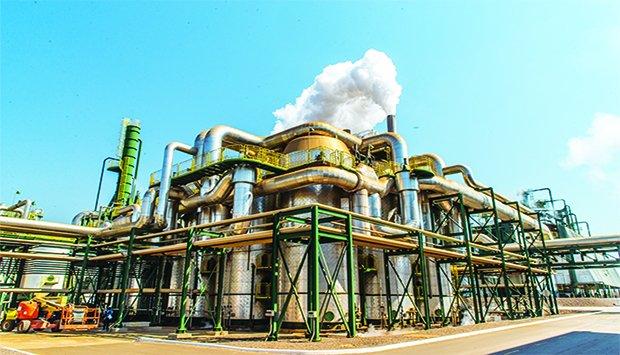Africa-Press – Angola. The Angolan State saved around US$100 million on imports of sugar and ethanol in 2021, with the production of 120,000 tons and 18,000 cubic meters of these products, manufactured at the Agro-industrial Complex of Capanda, in the municipality of Capanda. cuso, in Malanje, by the Angolan Bioenergy Company (Biocom).
This information was released on Tuesday (2) by the director of Planning at Biocom, Elton Machado, who also mentioned that last year a total of 120 thousand tons of crystal sugar were produced, which covered 40 percent the needs of the national market, which consumes 350 thousand tons annually.
According to the official, this year is expected to reach a production of sugar above that of last year, since the factory has the capacity to supply 50 percent of the needs of the national market. In relation to 2020, the company recorded an increase of 20 thousand tons.
When the project reaches maturity in 2025, he said, the company will have a production capacity of 2.2 million tons of sugar cane, 250,000 of white crystal sugar, 37,000 cubic meters of neutral ethanol and 136,000 megawatts of clean renewable electrical energy.
According to advanced data, Biocom has 38,000 hectares available for sugarcane plantations. As for the annual investment, this is around 40 million US dollars, which are used for agricultural activity, acquisition and maintenance of machines, among others, to keep the services operational. Since its inception in 2009, the company has invested more than 400 million US dollars.
new jobs
Biocom also foresees, for this year, the creation of 700 new jobs, thus totaling a workforce of 3,700 workers and the generation of more than 37,000 new indirect jobs. Currently, the company has a workforce of 1,700 employees. Last year around 800 new jobs were created.
For Elton Machado, the training component is the company’s focus, in line with the Executive’s strategies for the development of the national agro-industry, the increase and diversification of production and the reduction of imports, in addition to promoting employability.
“Our main challenge is to train staff and create jobs. The objective is to grow so that in the coming years we can reach 100 percent of production capacity. For this reason, more than 2,500 employees will benefit from training this year in several areas”, he concluded.
For More News And Analysis About Angola Follow Africa-Press






